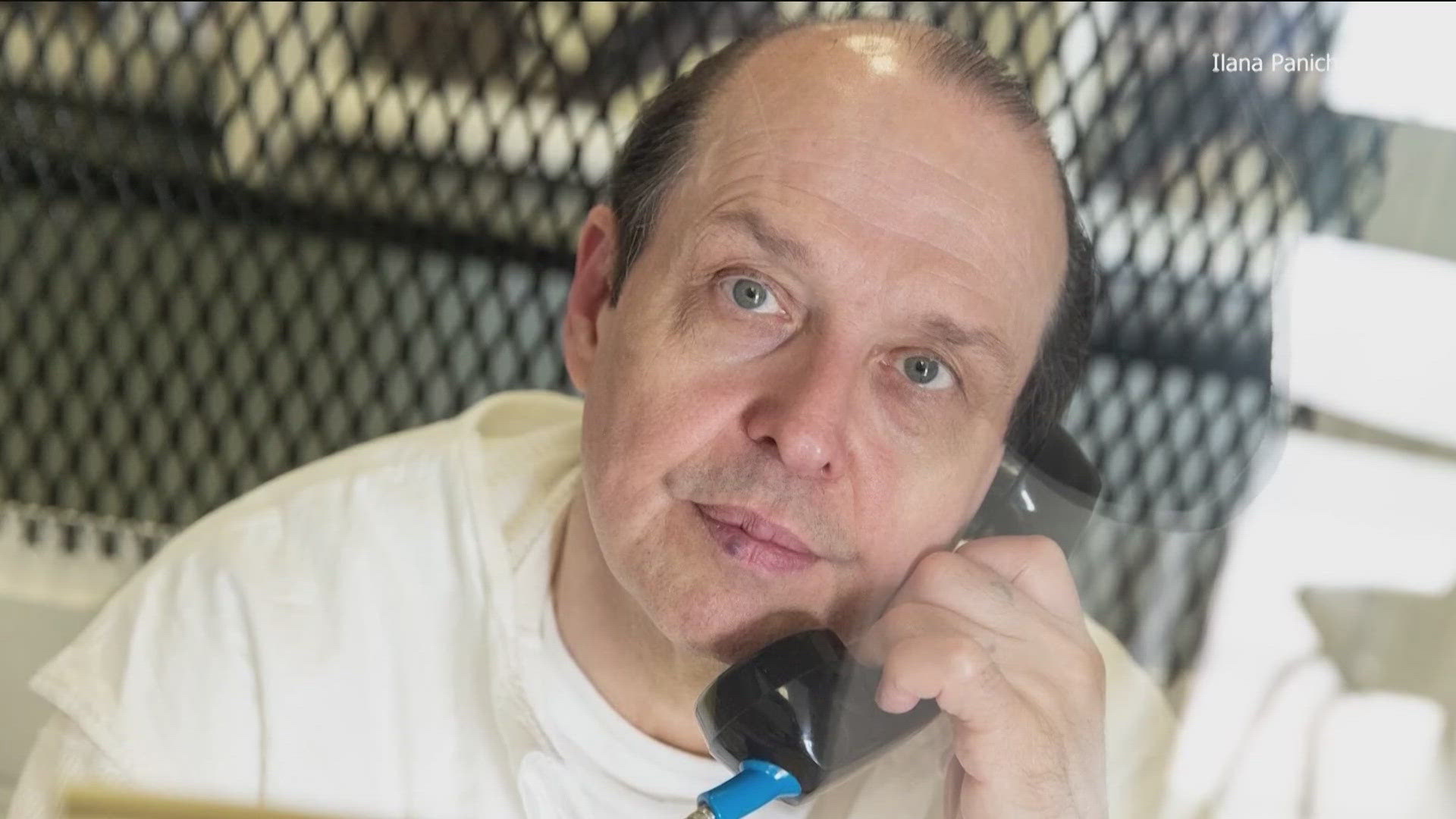AUSTIN, Texas — A Texas man who has spent more than 20 years on death row is set to be executed next month, but new evidence has many advocates reexamining his case.
This week, dozens of Texas House representatives, scientists, doctors, advocacy organizations and attorneys sent letters, urging the Board of Pardons and Paroles and Gov. Greg Abbott to grant Robert Roberson clemency before he’s set to be executed on Oct. 17.
In 2003, Roberson was convicted and sentenced to death for the murder of his 2-year-old daughter, Nikki.
What happened to Nikki?
During Roberson's trial, the medical examiner and a pediatrician claimed Nikki’s death was due to the “shaken baby hypothesis,” which has since been debunked.
“The death of Robert’s daughter Nikki was not a crime, it was a tragedy,” said Gretchen Sween, Roberson’s longtime counsel. “It was a tragedy that was caused by a failure of the medical community to recognize her dire condition.”
Since Roberson’s conviction, medical experts have found that in the days before her death, Nikki had severe, undiagnosed pneumonia, which they went to the hospital several times to get treated. Each time they were there, doctors prescribed Nikki medication like codeine and Phenergan, which made her condition worse.
On the night of her death, Nikki fell out of her bed. Roberson found her unconscious and turning blue. When he brought her to the hospital, Roberson's attorneys said that’s when the accusations started.
“He was immediately prejudged as suspicious because of a symptom of his autism,” Sween said.
Roberson’s late autism diagnosis
Detectives on Roberson’s case perceived his lack of emotion at the hospital as a lack of care or empathy, but it wasn’t until after he was convicted that a late diagnosis of autism was found to be the reason for his behavior.
“I say, I got it wrong,” said Brian Wharton, the former Chief of Detectives for the Palestine, Texas, police department. “I made some assumptions about Robert that were clearly incorrect … I'm embarrassed about myself that I did not see him as he is. Back then, it might have changed something."
Roberson’s attorneys claim his demeanor in the hospital and in interviews with detectives after his daughter’s death played a large role in how the jury perceived him.
But now, years after his conviction, the lead detective claims that Roberson is innocent.
'Robert is an innocent man'
Wharton was the lead detective on Roberson’s case and testified for the state during his trial. His testimony is largely the reason Roberson is on death row.
“I will forever be haunted by my participation in his prosecution, his arrest and prosecution,” Wharton said. "I am firmly convinced that Robert is an innocent man."
At the time, it was a medical examiner and a pediatrician who told detectives that Nikki’s death was due to the shaken baby hypothesis.
“I followed their lead. I simply accepted their explanation of what happened to Nikki,” Wharton said. “I followed some bad information about cause of death to the exclusion of all other possibilities.”
Since the trial, Roberson’s attorneys claim the medical examiner admitted to things she may have never considered, like Nikki’s medical history, but she will not revisit her decision. But it seems those admissions are not enough to pardon Roberson.
“It should not hinge on whether a single medical examiner is willing to admit that there have been 20 years of progress, and they might have been wrong,” Sween said.
When did the fight for innocence start?
In 2016, Roberson was set to be executed. He started writing letters to the court, begging them to give him new counsel to investigate his innocence.
This was also a few years after Texas lawmakers passed a law that has come to be known as the “Junk Science law," which allows new trials in cases where it has been shown that forensic evidence was flawed.
It was at that time that Roberson’s new counsel had the resources to start investigating Nikki’s death further. But even with all the new medical discoveries and debunking of the shaken baby hypothesis, Roberson has remained on death row.
Texas lawmakers get involved
The lawmakers who passed this bill in 2013 say they’re appalled that courts seem to be disregarding this state law.
“It’s especially troubling because we, as a Legislature, actually created a way for people like Mr. Roberson to challenge convictions based on science that later turns out to be wrong,” State Rep. Joe Moody (D-El Paso) said. “We changed the law to give that path and to give that relief. And as far as we can tell though, the courts simply aren’t engaging in that process.”
Eighty-four bipartisan members of the Texas House signed on to letters to the Board of Pardons and Paroles advocating for Roberson’s clemency.
“There are so many concerns, so many errors, so many flaws in Mr. Roberson’s case that they surpass partisanship, they surpass the specific views on the death penalty,” said Nan Tolson, the director of Texas Conservatives Concerned About the Death Penalty.
If Texas moves forward with Roberson's execution, advocates say he would be the first in the U.S. to be executed based on the discredited shaken baby hypothesis.
Roberson's attorneys say they still have a motion to withdraw the execution date pending in a district court, but that court has denied having a hearing on it several times. Most likely, they believe their fight will make it all the way to the U.S. Supreme Court.

